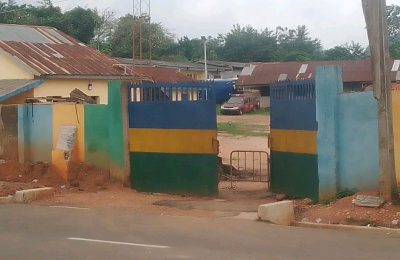

Socio-Economic Rights and Accountability Project (SERAP) has filed a lawsuit against the Independent National Electoral Commission (INEC) for “failing to prosecute those suspected of vote-buying and electoral bribery during the recently concluded Ekiti State governorship election.”
According to reports, there was a brazen pattern of vote-buying and electoral bribery in several polling units during the recently concluded Ekiti governorship election, including bargaining prices for votes and payments made in uncompleted buildings.
In the suit number FHC/ABJ/CS/1189/2022 filed last Friday at the Federal High Court, Abuja, SERAP is seeking “an order of mandamus to direct and compel INEC to seek and obtain detailed information about reports of vote-buying by the three leading political parties in the 2022 Ekiti State governorship election.”
The suit filed on behalf of SERAP by its lawyers Kolawole Oluwadare and Opeyemi Owolabi, read in part: “Vote buying is entirely an act of election malpractice connected with vested interest since an election can be said to be free and fair when it is devoid of vote buying.”
“Ending impunity for vote-buying and electoral bribery would contribute to free and fair elections. A corruption-free electoral process is essential for building public confidence in the electoral process, and the credibility and legitimacy of the 2023 elections.”
“One of the people’s most sacred rights is the right to vote. INEC has a constitutional and statutory responsibility to ensure the effective exercise of the right of all eligible voters to participate in their own government in free and fair elections.”
“Preventing and combating vote buying and electoral bribery would advance the people’s right to vote and to participate in their own government, as well as bolster the ability of INEC to effectively discharge its constitutional and statutory mandates.”
“Many years of allegations of vote-buying and electoral bribery and entrenched impunity of perpetrators have undermined public confidence in the electoral process.”
“Prosecuting allegations of vote-buying and electoral bribery would be entirely consistent with the Nigerian Constitution, the Electoral Act, and the country’s international human rights anti-corruption obligations.”
“Agents of the three dominant political parties in the state, namely All Progressives Congress (APC), Peoples Democratic Party (PDP) and Social Democratic Party (SDP), were reportedly involved in buying votes across the state, and voters offered as high as N10,000 in exchange for their votes.”
“The Nigerian Constitution provides in Section 14(1)(c) that, ‘the participation by the people in their government shall be ensured in accordance with the provisions of this Constitution.’”
“Section 145(2) of the Electoral Act provides that, ‘a prosecution under this Act shall be undertaken by legal officers of the Commission or any legal practitioner appointed by it.’”
No date has been fixed for the hearing of the suit. Continue Reading







